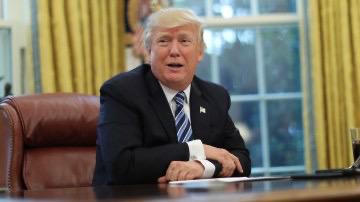 Image Source: The Times
Image Source: The Times
In a bold and controversial move, the U.S. government, under significant influence from former President Donald Trump and his team, has taken an unprecedented nearly 10% equity stake in Intel, valued at approximately $11 billion. This historic arrangement, reached through the conversion of government grants into common stock, marks a paradigm shift in the U.S. economic strategy and signals the possibility of many more such government-corporate partnerships across various industries.
Key Highlights: The Intel Deal and Trump’s Defense
The agreement will see the U.S. government acquire 433.3 million Intel shares at $20.47 each, funded by unpaid grants from the CHIPS and Science Act, as well as the Secure Enclave program.
Intel’s CEO Lip-Bu Tan expressed strong support for the partnership, emphasizing Intel’s commitment to American technological leadership.
Trump described the deal as “a great deal for America,” dismissing critics who called the arrangement “stupid” and touted it as a pathway for job creation and national economic growth.
The White House economic advisor Kevin Hassett indicated that this deal is likely the first of many, with potential similar stakes in other healthy U.S. companies in the near future.
Potential for More Government Stakes in Private Sector
Hassett revealed ambitions for building what could be likened to a sovereign wealth fund, where the U.S. government holds shares in various private sector companies, thus fusing public funds with corporate growth.
These future transactions may not be limited to semiconductors but could extend to other strategic industries, reflecting a new economic doctrine centered on state involvement.
The Trump administration’s approach signals a departure from prior norms that reserved government investment for crisis situations, now signaling ongoing investments aimed at long-term expansion.
Business Community Concerns and Risks
Intel highlighted significant risks in regulatory filings, including investor apprehension about government voting power diminishing shareholder influence and potential international regulatory challenges.
Analysts and industry experts question the impact of government stakes on business agility, customer relationships, and future financing.
Intel’s new risk disclosures underscore uncertainties linked to the unprecedented scale of government ownership in competitive sectors.
Broader Geopolitical and Economic Context
The deal responds to global semiconductor supply chain concerns and aims to bolster American technological sovereignty amid rising competition from China and other nations.
Similar government actions include acquiring “golden shares” in major industrial firms, like Japan’s Nippon Steel’s U.S. acquisitions, symbolizing heightened state leverage.
Trump’s administration is also actively engaging with companies to shift manufacturing and production back to U.S. soil through incentives and strategic investments.
Conclusion
Donald Trump’s bullish defense of the Intel share acquisition—and his promise of many more deals—heralds a new era of government-private sector collaboration in the U.S. economy. While celebrated by proponents for its job creation potential and industrial bolstering, this approach faces scrutiny over its implications for market dynamics, shareholder rights, and international competitiveness. The unfolding story of Intel’s government partnership will likely shape corporate governance discussions for years to come.
Sources: Al Jazeera, CNBC, BBC, Reuters, Fox Business, NBC News
Advertisement
Advertisement





